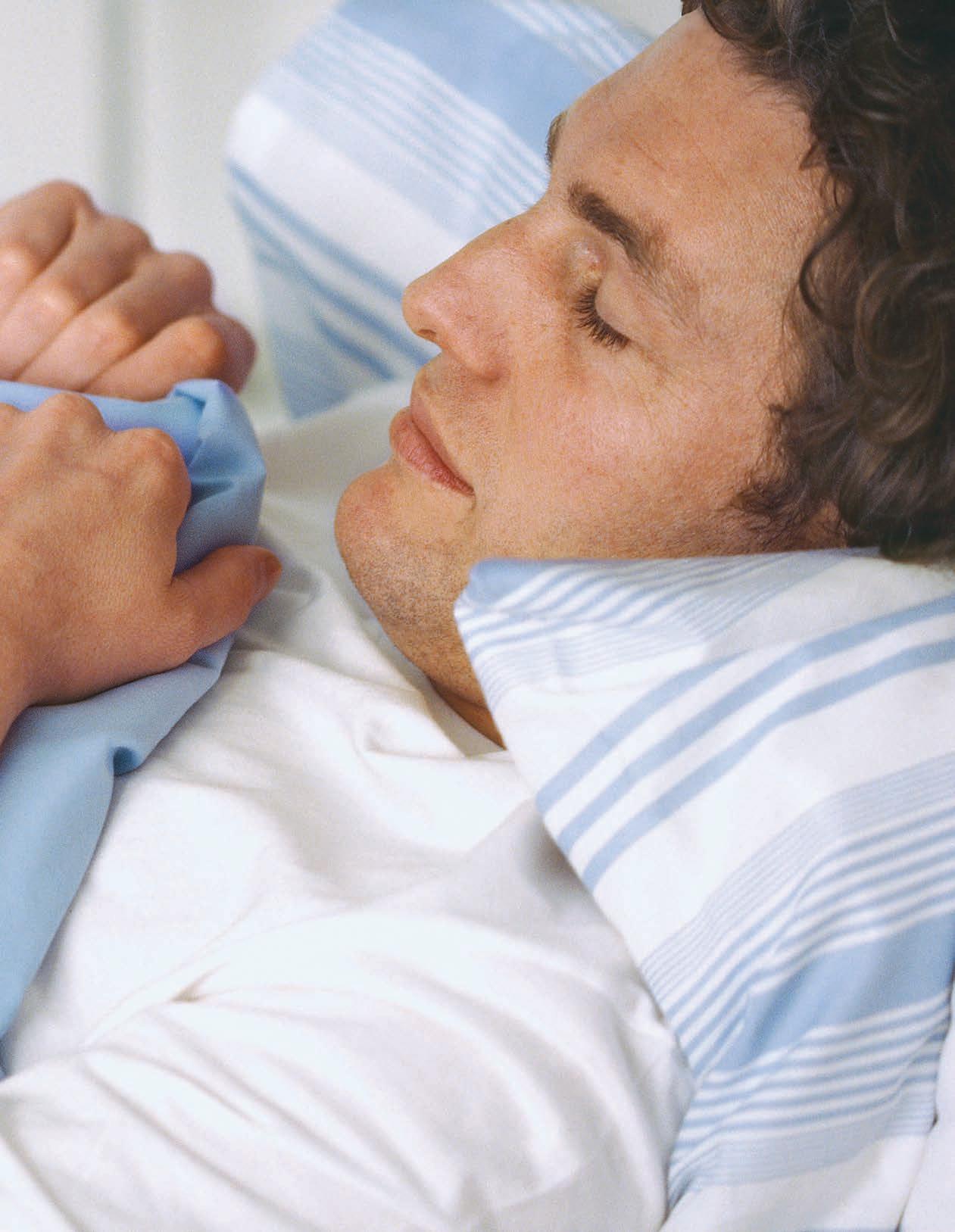
2 minute read
When You’re Sick
Having the flu, or even a cold, can make it hard to keep your blood glucose in your target range. You may not feel well enough to be active or eat regular food. Your diabetes health care team can help you develop an action plan for sick days. Follow all instructions from your health care provider closely.
If Your Blood Glucose Changes
Your blood glucose can rise quickly when you are sick. High blood glucose may also be a sign of infection. So it’s important to check your blood glucose often. Try to stick to your meal plan. If you have trouble eating solid foods, try soup, applesauce, or yogurt. And be sure to drink plenty of water and other sugar-free fluids to stay hydrated.
If You Can’t Eat
Your body needs carbohydrates in order to function. If you can’t eat at all, you will need to drink liquids with sugar or carbohydrates. This includes fruit juice, regular soda, and sports drinks. Talk to your diabetes team about the right amount of liquid carbohydrates. This will help keep your blood glucose from going too high or too low. Continue to drink water to stay hydrated.
Adjusting Your Insulin Dosage
Even if you can’t eat, don’t stop taking insulin when you are sick. If your blood glucose is high, you may need to adjust your dosage. If you adjust your insulin dosage, be sure to check your blood glucose often. This is to make sure your blood glucose doesn’t go too low. If your blood glucose falls below 70, take action! Eat or drink 15 grams of a fast-acting carbohydrate, such as glucose tablets or juice. Follow the directions on page 21 for treating low blood glucose.
Ask for Help!
When you’re sick, try to get plenty of rest. Only do as much as you comfortably can. You may need to ask family or friends for help with daily tasks. This may include cooking and cleaning, running errands, or picking up medications if you’re almost out of them. Those close to you should learn to recognize the signs of high and low blood glucose. Make sure family and friends know how to treat high and/or low blood glucose if needed.

When to Call the Health Care Provider

Call the health care provider right away if: • You can’t keep liquids down for more than 4 hours. • You have vomiting or diarrhea for more than 6 hours. • Your blood glucose stays over 240 mg/dL or under 70 mg/dL, even though you have taken your medication as directed in your sick-day plan. • You have not eaten normally for more than 24 hours. • You have a fever of 100.4˚F (38˚C) or higher. • You have trouble breathing. • You can’t stay awake or think clearly. • Your chest hurts. • You aren’t certain what to do to take care of yourself.










